Filter by

The paradox of scale :how NGOs build, maintain, and lose authority in environ…
An examination of why NGOs often experience difficulty creating lasting change, with case studies of transnational conservation organizations in Southeast Asia and the Pacific.OCLC-licensed vendor bibliographic record.
- Edition
- -
- ISBN/ISSN
- 9780262349246
- Collation
- 1 online resource (xi, 240 pages)
- Series Title
- -
- Call Number
- -
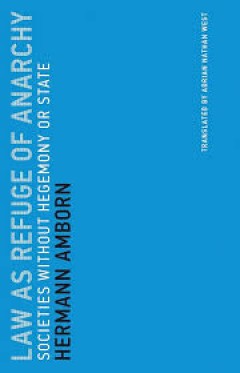
Law as refuge of anarchy :societies without hegemony or state
A study of communities in the Horn of Africa where reciprocity is a dominant social principle, offering a concrete countermodel to the hierarchical state. Over the course of history, people have developed many varieties of communal life; the state, with its hierarchical structure, is only one of the possibilities for society. In this book, leading anthropologist Hermann Amborn identifies a coun…
- Edition
- -
- ISBN/ISSN
- 9780262351423
- Collation
- 1 online resource (232 pages).
- Series Title
- -
- Call Number
- -
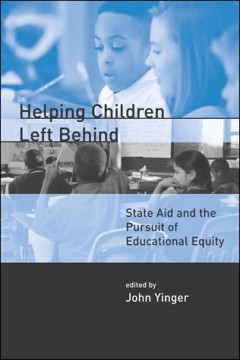
Helping children left behind : state aid and the pursuit of educational equity
Federal reform legislation declares, through its title, that no child should be left behind. Despite this, the sad truth is that many children are being left behind, particularly in large, poor, urban school districts. Because of this inequity, state supreme courts have thrown out the education finance systems in eighteen states, and many states have implemented major education finance reforms.…
- Edition
- -
- ISBN/ISSN
- 9780262286534
- Collation
- 1 online resource (ix, 404 pages) : illustrations
- Series Title
- -
- Call Number
- 370 HEL
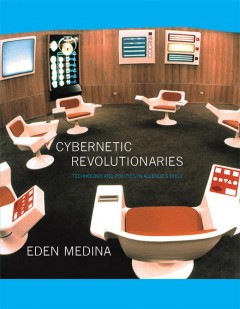
Cybernetic revolutionaries: Technology and politics in Allende's Chile
In Cybernetic Revolutionaries, Eden Medina tells the history of two intersecting utopian visions, one political and one technological. The first was Chile's experiment with peaceful socialist change under Salvador Allende; the second was the simultaneous attempt to build a computer system that would manage Chile's economy. Neither vision was fully realized—Allende's government ended with a vi…
- Edition
- -
- ISBN/ISSN
- 9780262298292
- Collation
- 1 online resource (xiv, 326 pages) :illustrations
- Series Title
- -
- Call Number
- -
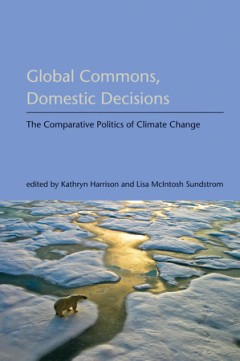
Global commons, Domestic decisions :the comparative politics of climate change
Climate change represents a “tragedy of the commons” on a global scale, requiring the cooperation of nations that do not necessarily put the Earth's well-being above their own national interests. And yet international efforts to address global warming have met with some success; the Kyoto Protocol, in which industrialized countries committed to reducing their collective emissions, took effe…
- Edition
- -
- ISBN/ISSN
- 9780262289481
- Collation
- 1 online resource (xi, 312 pages) :illustrations.
- Series Title
- -
- Call Number
- -
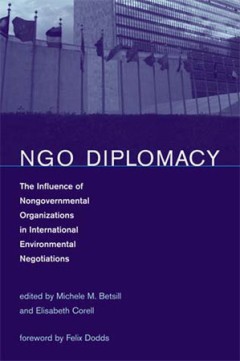
NGO diplomacy The Influence of Nongovernmental Organizations in International…
Provides an analytical framework for assessing the impact of NGOs on intergovernmental negotiations on the environment and identifying the factors that determine the degree of NGO influence, with case studies that apply the framework to negotiations on cl.
- Edition
- -
- ISBN/ISSN
- -
- Collation
- 1 online resource (xvii, 244 pages)
- Series Title
- -
- Call Number
- -

Scientists under surveillance :the FBI files
Cold War-era FBI files on famous scientists, including Neil Armstrong, Isaac Asimov, Albert Einstein, Richard Feynman, Alfred Kinsey, and Timothy Leary. Armed with ignorance, misinformation, and unfounded suspicions, the FBI under J. Edgar Hoover cast a suspicious eye on scientists in disciplines ranging from physics to sex research. If the Bureau surveilled writers because of what they believe…
- Edition
- -
- ISBN/ISSN
- 9780262353021
- Collation
- 1 online resource (440 pages).
- Series Title
- -
- Call Number
- -
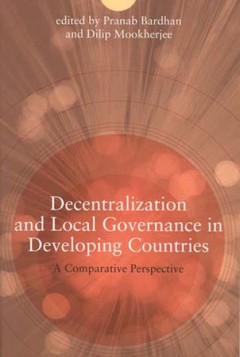
Decentralization and local governance in developing countries: a comparative …
Over the past three decades the developing world has seen increasing devolution of political and economic power to local governments. Decentralization is considered an important element of participatory democracy and, along with privatization and deregulation, represents a substantial reduction in the authority of national governments over economic policy. The contributors to Decentralization a…
- Edition
- -
- ISBN/ISSN
- 9780262267694
- Collation
- 1 online resource (vi, 363 pages)
- Series Title
- -
- Call Number
- -
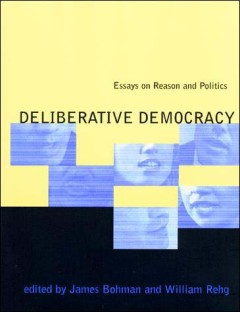
Deliberative democracy: essays on reason and politics
"The anthology opens with four key essays - by Jon Elster, Jurgen Habermas, Joshua Cohen, and John Rawls - that helped establish the current inquiry into deliberative models of democracy. The nine essays that follow represent the latest efforts of leading democratic theorists to tackle various problems of deliberative democracy. All the contributions address tensions that arise between reason a…
- Edition
- -
- ISBN/ISSN
- 9780262268936
- Collation
- 1 online resource (xxx, 447 pages)
- Series Title
- -
- Call Number
- -
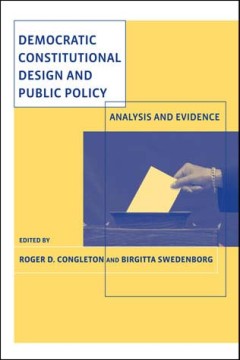
Democratic constitutional design and public policy: analysis and evidence
Papers originally presented at a conference sponsored by the Center for Business and Policy Studies.Leading scholars in rational choice analysis present the public choice, new institutionalist, and new political economy perspectives on the political and economic effects of constitutional design and review the accumulating empirical evidence.OCLC-licensed vendor bibliographic record.
- Edition
- -
- ISBN/ISSN
- 9780262270731
- Collation
- 1 online resource (384 pages)
- Series Title
- -
- Call Number
- -
 Computer Science, Information & General Works
Computer Science, Information & General Works  Philosophy & Psychology
Philosophy & Psychology  Religion
Religion  Social Sciences
Social Sciences  Language
Language  Pure Science
Pure Science  Applied Sciences
Applied Sciences  Art & Recreation
Art & Recreation  Literature
Literature  History & Geography
History & Geography